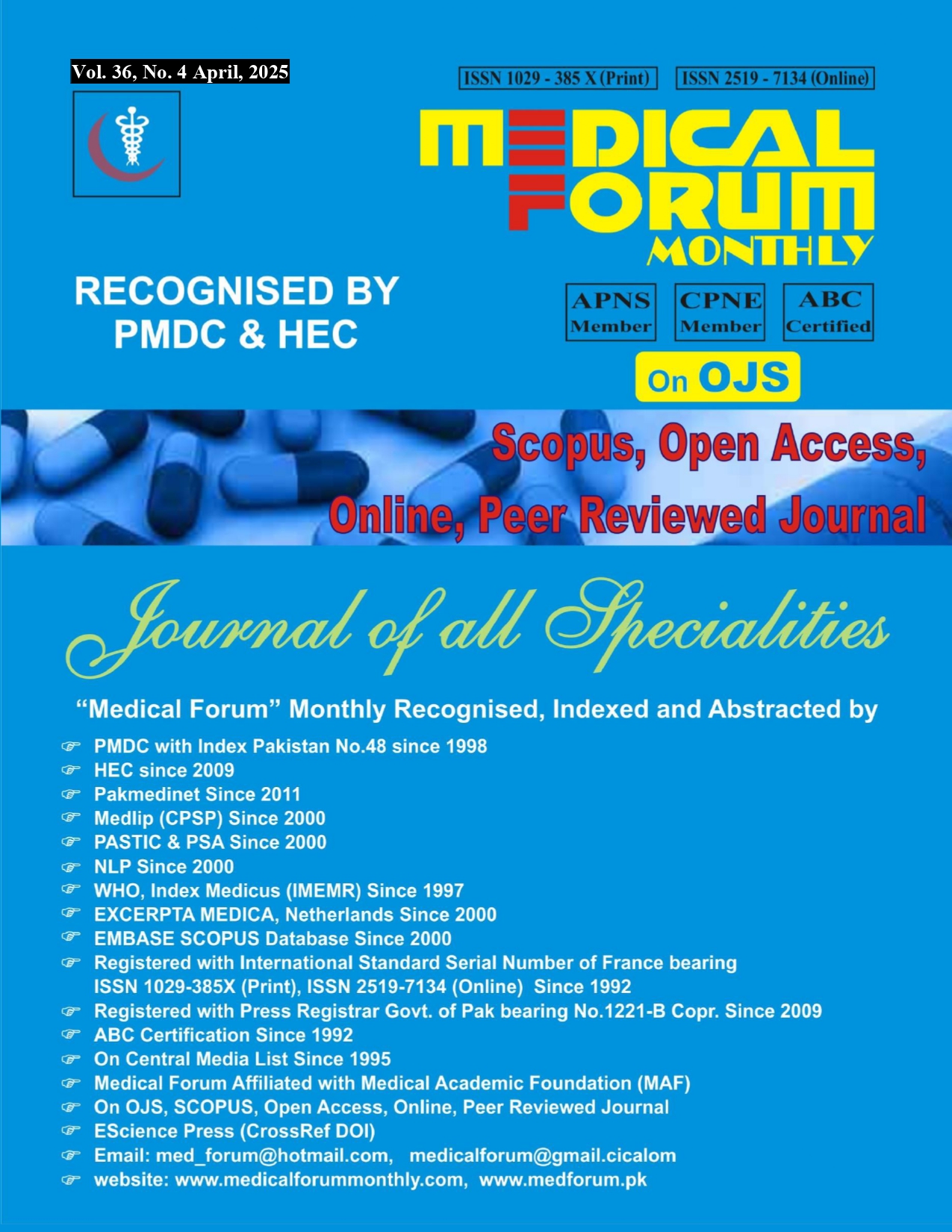Evaluating the Social Integration and Emotional Health of Children Post-Strabismus Surgery
DOI:
https://doi.org/10.60110/medforum.360402Keywords:
Paediatric strabismus, psychosocial outcomes, social integration, quality of life, emotional healthAbstract
Objective: To investigate the results of strabismus surgery on social integration and emotional well-being in children.
Study Design: Prospective cohort study
Place and Duration of Study: This study was conducted at the Department of Ophthalmology, Hayatabad Medical Complex, Peshawar over the course of two years, between January 2023 and December 2024.
Methods: This prospective cohort study at a tertiary care center in Pakistan included 90 children (4-16 years) undergoing strabismus surgery. Psychosocial outcomes were assessed preoperatively and at 3/6-month follow-ups using PedsQL and SDQ questionnaires. Statistical analysis included paired t-tests and multivariate regression.
Results: Significant improvements were observed across all psychosocial domains (p<0.001). Emotional functioning scores increased from 62.4±15.2 to 82.3±10.5, while social functioning improved from 58.7±16.3 to 80.9±11.7. Parental reports confirmed reduced bullying (78.9%) and better school participation (85.6%). Younger age (≤10 years), esotropia, and smaller deviations predicted better outcomes (p<0.05).
Conclusion: Children who undergo strabismus surgery experience significant psychosocial gains, including improved emotional quality of life and enhanced social incorporation. Since early intervention is crucial, the
integration of psychosocial care into strabismus practice guidelines is recommended.
































 This work is licensed under a
This work is licensed under a 